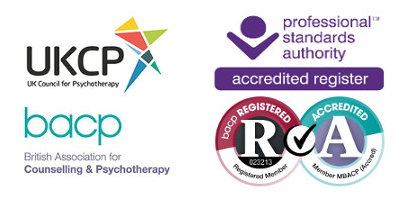Counselling for Stress in London
Stress management therapy with Marcus
Nowadays people often believe that living with a high level of stress is normal and unavoidable, and that stress symptoms can be ‘managed’, whether by indulging in addictions (alcohol, overspending etc.) or simply putting up with consequences such as poor sleep patterns. However, excessive stress is very unhealthy, especially over time, and should not be accepted as “normal”.
Counselling for Stress shows you that when you keep on triggering your body’s emergency ‘fight or flight’ response, you gradually erode your health and sense of wellbeing. Working with Marcus you will learn to manage your response and by doing this, learn how to shift that ingrained stress pattern.
What are the symptoms of stress?
Emotional Signs & Symptoms of feeling Stressed include the following:
- difficulty concentrating or focusing
- irritability, short temper, anger and conflict
- anxiety, worry, depression
- feeling out of control
- overwhelm & burnout
Physical Signs & Symptoms of feeling Stressed include the following:
- insomnia or other sleep problems, leading to fatigue & exhaustion
- excessive sweating or palpitations
- headaches or migraines
- eating or digestion issues – loss of appetite, or over-eating, heartburn, indigestion
- skin problems
- muscle tension or aching or muscle twitching
- tendonitis, RSI, fibromyalgia
- drinking to excess or in increasing amounts
- impotence and other sexual function problems
- high blood pressure
- nightmares, night sweats
- chronic pain
- a worsening of conditions like IBS or asthma
Is It Stress?
Let common sense be your guide. Always see a doctor and be checked out medically, before assuming your symptoms are entirely stress induced.
“When we are no longer able to change a situation, we are challenged to change ourselves.”
Viktor Frankl, neurologist and psychiatrist
What causes stress?
Each time you ignore and override the body’s signals – Pause, Rest or Set Limits – you activate your inbuilt fight-flight response.
The chemicals inside the body, and the muscles at the surface of the body, get you ready to fight, to flee or to hide.
If that keeps happening continually, the cumulative effect is exhaustion and more stress.
But why are you constantly making yourself “battle ready”, and putting your body systems on to a “war footing”?
Most people are somewhat disconnected from a sense of what is going on in the body.
Because we’re not very aware of how life’s challenges and demands are having an impact hour by hour on the body’s internal systems, we readily let ourselves be over-burdened, over-extended and overwhelmed. We give up our boundaries without realising it.
We have been conditioned either to not feel, or to override or ignore, our body’s needs. We have been programmed this way partly by our upbringing, and partly by our modern, high achieving, ‘hurry hurry’ culture which does not encourage us to respect our personal limits but rewards overwork and over-consumption.
Most of us were well schooled in ‘trying harder’, not being ‘lazy’, pulling our socks up and so on. So we prioritise fulfilling our checklist of tasks. We carry on working through the headache, we stay up late when the body actually needs to rest, we keep rushing forward even though the heart wants to pause and smell the roses. It is a very inefficient, unhealthy way to live.
It is important to deal with our stress reactions at a core level. What can happen is that we try to deal with signs of stress by medication or ‘relaxation exercises’, both providing some temporary relief, but the underlying stress pattern is untouched and, in fact, on its way to becoming chronic. Chronic stress can increase susceptibility to infection, allergies, sleep disturbance, adrenal fatigue, post-traumatic stress symptoms (PTSD) [link] and an underactive thyroid.
“I have really benefited from our work and am grateful for the progress you have helped me make while having these sessions with you.” – M.
How does stress management therapy work?
In therapy you will learn to undo the fight, flight or freeze pattern, step by step, and to regulate your own internal pressure and tension. You will still have reactions to things going on around you, but you will become less likely to stay stuck in your overstressed reaction state.
As you become less reactive, the demands of the world will affect you a little less, resulting gradually, incrementally, in reduced stress symptoms and better mental and physical welfare.
Some of the benefits people have reported are: less exhaustion, less risk of burnout, fewer stress-induced headaches or arguments, better digestion, better skin, better sleep, even better sex – overall, a healthier body and a more positive, focused, even-tempered mind.
Counselling for Stress with Marcus
Take the first step to bringing your stress levels down and learning to listen to your body and take care of yourself. Contact Marcus to discuss Counselling for Stress.



